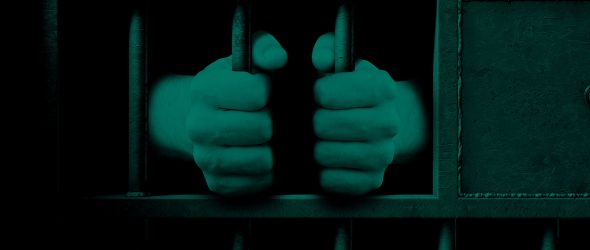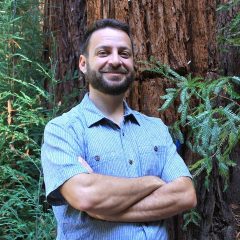Inmates and staff at several different prisons have tested positive for COVID-19, prompting at least four states to begin the process of releasing certain prisoners early based on age, length of remaining sentence, or underlying health conditions that would make them more susceptible to the virus.
Now a coalition of cannabis activists and advocates is calling for the immediate release of all non-violent cannabis prisoners currently held in federal, state and local facilities, as well as a total cessation of arrests, trials and prosecutions for non-violent cannabis crimes.
The coalition, led by the Last Prisoner Project, calls for emergency policies that would not only free those currently ensnared by the criminal justice system for cannabis, but also give prisons and local jails a better chance of effectively responding to the health crisis.
“There are 2.3 million people in the United States in prison,” according to Last Prisoner Project founder Steve DeAngelo, “and the very best way to cut that down immediately would be to release every single person who’s in there on cannabis charges, since it never should have been a crime in the first place.”
Doing time when it’s not a crime
At a time when cannabis is fully legal in 11 states, and authorized for medicinal use in a large majority of the country, it’s a national shame and disgrace that anyone remains imprisoned for a non-violent crime related to the cultivation, distribution or simple possession of this beneficial plant.
The coalition is calling for a series of commonsense moves to improve conditions and outcomes for everyone involved, including the following:
- Release all cannabis prisoners. No one incarcerated for a victimless cannabis offense should continue to be incarcerated today. Now is the time to free our cannabis prisoners and further reduce the risk of outbreaks in correctional facilities.
- Identifying people who are scheduled to be released from prison or jail in the next six months and release them into home confinement.
- Parole all prisoners over the age of 65, with priority given to those who have underlying health conditions that make them particularly susceptible to the virus.
- Individuals who have successfully completed at least three years of supervision should be transferred to administrative supervision or have their supervision terminated altogether.
- Suspend copays for medical visits made by incarcerated persons. It is cruel and unusual punishment to deny access to lifesaving medical care to incarcerated individuals simply because they can’t afford it. This is particularly unjust when considering prisoners often work for less than a dollar a day, including those making hand sanitizer for the state of New York.
- Correctional facilities across the country are implementing lockdowns and suspending visitation. We must ensure FREE access to smart visitations and phone calls for all incarcerated individuals.
Locked up with the virus spreading
Before founding the Last Prisoner Project in 2019, Steve DeAngelo was already an established leader of both the cannabis movement and industry, with a long resume of operating on both sides of the law
Decades ago, long before any state had legalized—even for medicinal use—DeAngelo served as both an underground cannabis retailer and a frontline political organizer. Now he’s the co-founder and head of Northern California’s Harborside Health Center, among the nation’s largest medical cannabis dispensaries, and also co-founder of The Arcview Group, a leading cannabis investment and market research firm.
“When we launched the Last Prisoner Project, I asked people to imagine what it would feel like to be locked in a prison cell, looking out as you saw people doing the exact same thing, legally, that you were arrested for,” DeAngelo said in a video address calling for grassroots support. “Today I’m asking you to imagine what it would be like to be in a prison cell during the coronavirus. If you’re like me, you’ve been trying to bring everything you can under control—food, supplies, checking on your family and loved ones. But when you’re locked up you can’t do any of that. You have no control over your food, over social distancing, or even the air that you breath.”
‘Helpless, terrified, and trapped’
After getting busted by the DEA in 1978 on a first-time, non-violent cannabis smuggling charge, Robert Platshorn spent nearly 30 years in 11 different correctional institutions, earning the terrible distinction of being America’s longest serving prisoner in the war on marijuana.
Released in 2008, he immediately began a new life as an advocate and activist, educating his fellow senior citizens about the plant’s medicinal benefits while pushing for legalization.
Contacted by Leafly, Platshorn says those currently locked up are feeling “helpless, terrified and trapped.” He wrote:
I’ve lived through thirty years of flu seasons and worse in prison. Most convicts live in huge open dormitories or group cells, trapped alongside very sick and dying inmates for weeks or months.
Ordinarily, terminally ill inmates are sent to a local hospital. But if local hospitals are overcrowded, they will likely not accept prisoners, and medical attention inside will be minimal or non-existent. So the death toll will be much greater than in the civilian population. Eventually riots and violence could break out as helplessness and frustration fosters “nothing to lose” behavior.
How to raise your voice
Any and all members of the cannabis community can immediately help with the ongoing effort by contacting local officials and urging them to take action. The Last Prisoner Project website has made available a variety of tools to do this, including information on how to locate your state’s governor’s office and Department of Corrections, and information from the Prison Policy Initiative on how correctional facilities near you are (or aren’t) responding to this growing health crisis.
As the deadly and highly contagious coronavirus spreads, there’s no segment of our society more vulnerable, and less able to take proper precautions, than those being held against their wills in our overpopulated prison system. Which means an already unjust punishment could quickly turn into a health emergency or a literal death sentence.




